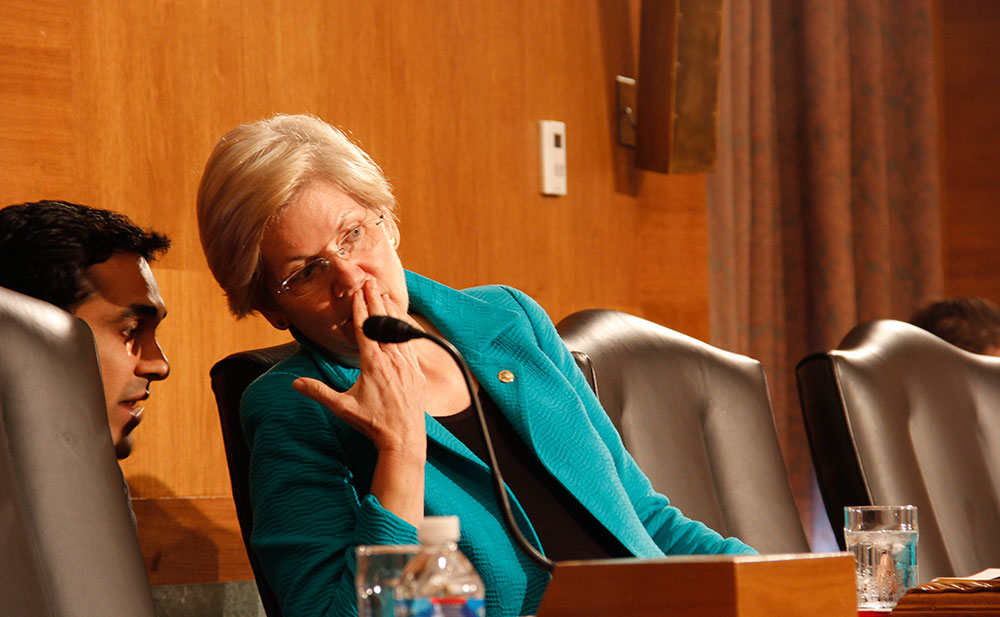Washington — A Senate committee examined Tuesday the fairness of high-frequency trading and questioned how regulation can keep up with the fast changing technology that has disrupted the stock market.
Speedy trading firms use sophisticated algorithms to analyze orders and execute them at a rapid pace. These companies are sometimes able to force up the prices of stocks and resell them within seconds to other investors. The firms profit from price fluctuations and fast execution in millions of transactions.
In 2010, high frequency trading was blamed for a stock market crash that saw the Dow Jones Industrial Average plummet 1,000 points in minutes.
On Capitol Hill Tuesday, Sen. Elizabeth Warren, D-Mass., asked, “If you are buying a stock, turning it around and selling it within a second later to someone else, how does it provide liquidity to the market? Couldn’t the original sellers sell the stock to the ultimate buyers one minute later?”
Kevin Cronin, global head of trading at Invesco Ltd., had an answer. “That’s why we want to make a distinction between trading volume, which is what you described, and real liquidity.” Cronin said liquidity – meaning there are ready sellers and buyers, ensuring an asset can be traded without losing significant value – is what the market requires. He was also concerned about “excessive intermediation,” such as some high frequency trading, in the markets.
Not all of the panelists testifying before the Banking, Housing and Urban Affairs Committee wanted to tamp down high-frequency trading.
“There’s always been a race for speed,” said James Angel, professor at Georgetown University. “And even if you put in speed bumps, people will raise their speed as fast as they can to jump around these bumps.”
Citadel LLC’s CEO Kenneth Griffin said such technique is used in trading the exchange-traded funds that many retail investors purchase.
Senate Banking Committee Chairman Tim Johnson, D-S.D., said he feared existing regulations have lagged behind complex evolving trading tools and marketplaces.
“The regulatory environment has to recognize the new electronic trading landscape, one where institutions, individuals, market makers and traders interact at high-speed over dozens of connected markets,” said Johnson. “The benefits of lower costs and more efficient trading are important, but fairness and market resilience are also vital and should continue to be examined.”
While there was no consensus on how to improve regulation, some panelists suggested that all the high-frequency trading firms and broker-dealers should disclose more information so as to provide more transparency.
Invesco’s Cronin, in a prepared statement, said “a reasonable first step” dealing with predatory practices “would be to ensure that all entities that engage in high-frequency trading be required to register under a uniform regulatory regime.”
It was the second Senate hearing to look at high-frequency trading after financial writer Michael Lewis published his book Flash Boy in March that featured such trading practices on Wall Street.

